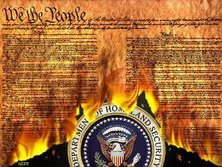For some reason I will never fully
comprehend, there is a tendency among Americans – at least, among self-described
flag-waving, ‘patriotic’ types – to roll their eyes and make dismissive
comments when it comes to the French, or international politics involving
France. There is almost a knee-jerk ‘put-down
of Things French….the way some New Yorkers refer to New Jersey….
But the reality is, the American
Revolution – which is embodied in this holiday we call Independence Day – was not
an American victory. In spite of all of
our civil mythology about the brave souls at Lexington and Concord, the brutal
winter at Valley Forge, escaping from Brooklyn in the fog, Washington Crossing
the Delaware, the Battle of Ticonderoga, ...the American Revolution was, at the
least, a Franco-American victory – and one
could easily argue that it was largely a French victory.
A mere five months after the
Continental Congress adopted the Declaration of Independence, Benjamin Franklin
was dispatched to France (December of 1776) to gain an alliance with the French. Within weeks, French support of the Americans’
cause was being organized.
King Louis XVI and his foreign minister, the compte de Vergennes arranged for the
large-scale sale of gunpowder and
ammunition to the colonists, who had
little capacity for mass production. The French arranged for the undercover use
of a Portuguese shipping company to smuggle arms through the Dutch West Indies
island of St. Eustatius. If not for this
channel of arms deals, George Washington could not have lasted a year. In fact, British General Burgoyne’s defeat in
the Champlain region of New York occurred entirely at the hands of American
marksmen - firing French ammunition.
In 1777, Marie-Joseph Paul Yves Roch Gilbert du
Motier, Marquis de La Fayette sailed for
America at his own expense (the Americans had already run out of money) and
became a Major-General in the Continental Army and an aide-de-camp to Gen.
George Washington at Valley Forge. He uncovered a plot to dismiss Washington,
and secured the alliance of the Oneida Tribe for the colonists. By February 6, 1778, France formally
recognized the United States and signed a Treaty of Alliance, leading to
numerous engagements between British and French ships in Europe. Lafayette
recognized how outnumbered the Americans were, and returned to France to recruit additional
forces.
By March 1780, Lafayette returned from France and landed in Boston with his recruits: 5,500 men and 5 frigates. In addition to Lafayette’s forces, the Americans received another French ally: Jean-Baptiste Donatien de Vimeur, Comte de Rochambeau, who arrived in Newport, RI with 7,000 troops and was given the rank of Lt. General in the Continental Army. Rochambeau actually commanded a larger force than George Washington. Rochambeau met up with Washington in Wethersfield, Connecticut to plan a decisive assault on the British.
Washington wanted to drive the British out of both New York City and the Chesapeake Bay, but Rochambeau believed that the Chesapeake would be a more strategic battle. Either way, the Generals determined that additional naval forces would be needed for either effort, and Rochambeau dispatched a request to
French Navy Lt. General François-Joseph Paul, marquis de Grasse Tilly, comte de Grasse, commander of the French West Indies forces, to sail to the Chesapeake. Rochambeau and Washington then restaged their forces in White Plains and Dobbs Ferry, NY.
De Grasse received the letters in July, agreed with Rochambeau’s analysis, and set sail. At the same time, British General Lord Cornwallis was setting up a major British military presence in the Chesapeake and Potomoc area of Virginia, but was being contained and harassed In Yorktown by Lafayette, who had confronted and contained him there. Washington and Rochambeau set out on a combined march to Virginia, while Cornwallis waited for additional supplies from the British Navy.
In September 1781, Washington and Rochambeau met up with the Marquis de Lafayette's troops.
Within days, De Grasse’s naval fleet reached the Chesapeake as planned. The British fleet arrived to deliver supplies to Cornwallis, only to find themselves in a battle with de Grasse for control of the bay in the Battle of the Chesapeake. The naval battle was a decisive win for the French.
On September 28, 1781, with DeGrasse’s French fleet blockading the British reinforcements, the combined forces of Rochambeau, Lafayette, and Washington laid siege to Lord Cornwallis’ forces.
Cornwallis surrendered on October 19, 1781, and American Independence was won.
Ammunition, military expertise, troops, naval power….all were brought to bear by France…and without French participation, there would have been no American victory. So the next time you have an inclination to say something smug about France or French military capabilities….a "merci, mes frères!" might be more appropriate.
.





























